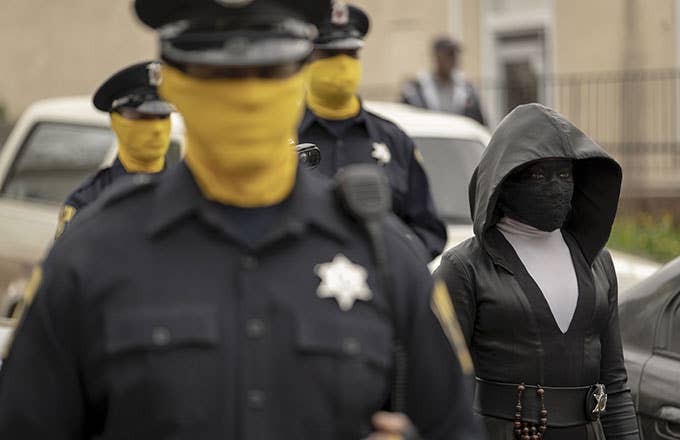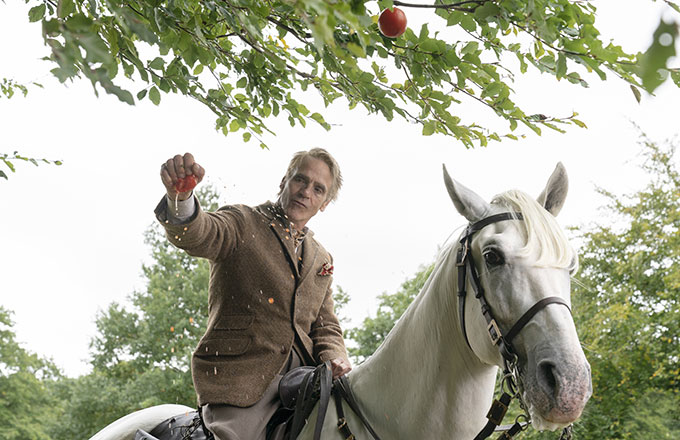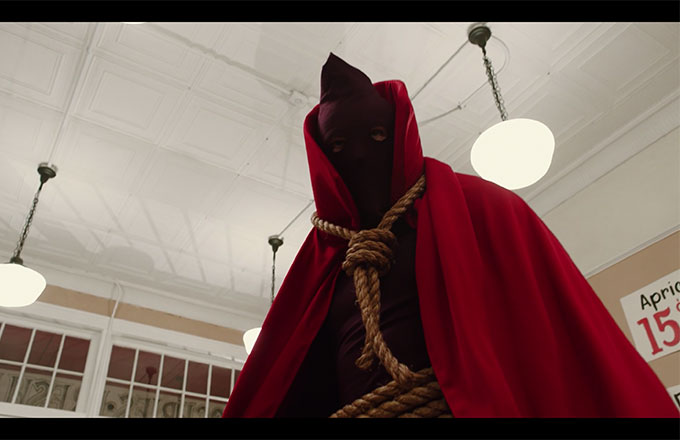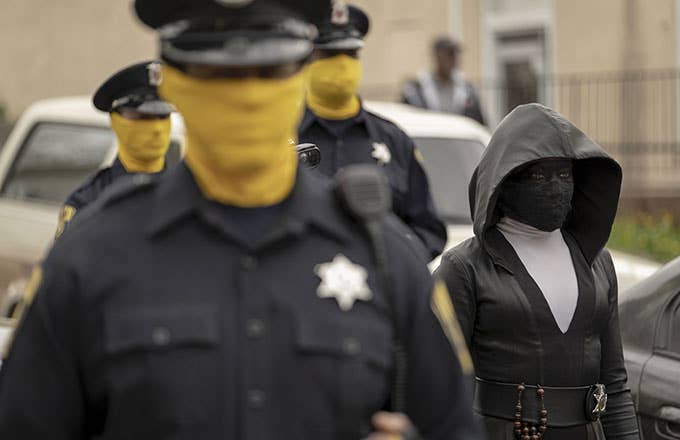
Those looking for answers to the myriad of questions posed in last week's Watchmen pilot got a little bit of satisfaction during tonight's ep—which also, inevitably, opened up a whole other can of worms. Once again directed by Nicole Kassell from a script written by series creator Damon Lindelof (co-written with Nick Cuse), episode 2 or “Martial Feats of Comanche Horsemanship,” pulls back its scope to focus more on Regina King's fiery protagonist Angela/Sister Night and the event that led to her donning a mask and costume in the first place. Let’s take a look at the most interesting aspects of this episode, the questions they answer and the new ones they pose, and their larger connections to the comic book.
“Martial Feats of Comanche Horsemanship” sharpens its focus on Angela as she digs for answers around the death of Judd, all the while further fleshing out her backstory. As Old Man Will Reeves asks Angela directly, “Who are you?” the audience gets a bit more shading around the duality of her public and private life. The deep relationship between her and Judd get its inflection point in a sequence befitting of the comic, as we learn that the Seventh Kavalry’s White Night attack took place on Christmas Eve of all days (Much like a number of flashbacks in the comic. Coincidence?) The resulting chaos left Angela and Judd as some of the only existing members of the police—her and husband Cal's "children" are really the orphaned kids of her slain partner. (And judging from the appearance of go-to character actor Jim Beaver as an ornery white man loitering on Angela and Cal's porch, there's some drama we havnen't seen the last of regarding the kids' biological family.) A majority of the force quit after realizing 7K had their names and addresses.
Even in our brief time with Angela, we’ve quickly learned that she’ll take the fight over flight every day of the week, which serves as the foundation between her and Judd's connection that was so well established in such a short amount of time. However, the reveal that Judd has full Klan regalia sitting behind a hidden door in his closet makes for a startling discovery for both Angela and the audience. But the revelations don’t stop there: Angela’s detective work ends up unearthing the revelation that she and Will are related. While a timely aerial abduction leaves us and Angela to wonder just what in the world is happening, her origins now have been upended alongside Judd’s.
"The Watchmaker's Son"

“This extraordinary being had crashed in through the window of the supermarket while the robbery was in progress and attacked the man responsible with such intensity and savagery that those not disabled immediately were only too willing to drop their guns and surrender.”
Sound familiar? Comic book readers will remember this quote at the end of the first chapter of Watchmen, as it comes from the printed excerpts of Hollis Mason’s autobiography, Under the Hood, detailing his adventures as a member of the Minutemen in the late 1930s and early 1940s that show up frequently in the comic. This directly serves as the source material for the first installment of the television show’s “show-within-the-show,” American Hero Story. That concept fits within the spirit of the comic as well, as readers will know that the Watchmen comic book contains excerpts of a pirate comic book called Tales of the Black Freighter. That story was used frequently as a device to comment on the larger thematic and plot elements happening in the main story. American Hero Story (which in itself is a playful Ryan Murphy send-up) looks to do the same for the TV version of Watchmen, using Hooded Justice, one of the original heroes in this universe, to comment on Angela. Additionally, the slow-mo and sped-up effect that occurs while Hooded Justice unleashes his fury might be a nod, for good or for ill, to the Watchmen film adaptation, particularly director Zack Snyder’s proclivity to use this technique in his action sequences.
Oh, by the way, Hooded Justice’s original name—per the initial character notes of Alan Moore and Dave Gibbons—was Brother Night. That’s a deep cut that Lindelof and his crew have pulled in as a reference for Angela’s secret identity of Sister Night.
Odds, Ends and Other Notes


